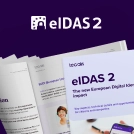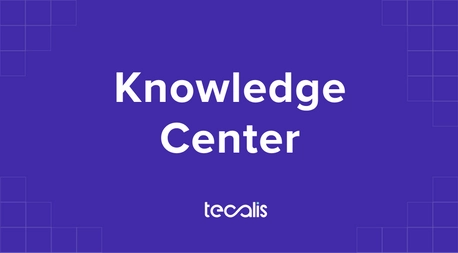Index
Get the latest news right in your inbox
Digital or electronic identification is the current basis for online transactions. Or at least, in theory, it should be. Transactions regulated through digital channels and carried out in remote processes must meet a series of technical and legal requirements in order to be valid and have regulatory backing.
Specifically, there are a number of industries that, due to the nature of their operations and their sector of activity, are more susceptible to regulation. However, this does not necessarily mean that all players in the sector are doing well, and there are even some who are not yet complying with the regulations correctly, exposing themselves to serious risks and sanctions.
In the remaining industries that are not required by law to comply with a set of minimum standards, business professionals have taken note and have proactively begun to implement digital ID solutions to take advantage of all its benefits and advantages, whether as part of risk management and fraud prevention policies or to drive growth in sales and productivity.
What is digital or electronic identification?

Digital identification is the process of verifying the identity of a subject with electronic techniques. In this way, we confirm that a person or company is who they say they are without the need to be present at the same location. In a traditional identification, the user would generally show a commercial agent or employee an identification document such as a passport, driving license, or national identity card. The agent verifies that the person appearing in the photograph on the document corresponds to the face of the person handing it over and that he/she will be the holder of the products or services contracted.
On the contrary, electronic identification it is a digital system that performs this verification in an automated and instantaneous way. It is a necessary step to be able to register a user in a system, offer him services to contract, or carry out any type of commercial transaction. In this way, digital customer identification has solved the problems faced by online contracting related to money laundering, money theft, and other types of illicit activities.
We also talk about the digital identification of a business or KYB (Know Your Business). This process is increasingly important in the digital economy as the B2B area has expanded with thousands of business types that need to register companies as customers, suppliers, partners, or associates. Likewise, it is especially useful when Due Diligence needs to be carried out. It also includes a verification of the identity of the UBOs as well as other types of controls on commercial and public documentation of the businesses and their managers or representatives.
In either case, the digitization of these processes has brought a series of benefits that far outweigh the minimal costs and non-existent efforts required to implement solutions of this type in any business operation. Productivity rates have skyrocketed not only because employees have been relieved of these types of administrative tasks to dedicate their time to other more valuable tasks, but also because zero error is now possible. The reliability of these systems and the hundreds of controls that are passed in milliseconds on the user, its documentation, and the data it provides minimize the possibility of fraud, avoiding that a false document does pass the filter of a human and a highly trained system would detect without qualms.
In addition, the instantaneousness of electronic identification and the connection of this with RPA techniques with the rest of the company's systems allows to instantly register the opening of a bank account or the activation of a credit line. In the case of remote onboarding, giving immediate access to the customer platform without waiting ensures more sign-ups because the leads are really ready to interact.
Digital identification in banking, financial services, and insurance
Banking and related areas were the pioneers in naming digital identification as the electronic Know Your Customer (eKYC) process. Banks, insurance companies, investment firms, and other related companies have been aware of the KYC process for decades and have been the first to go digital with this requirement.


Banking KYC implements controls of appearance in PEP (Politically Exposed Persons) lists and other public and private databases of sanctioned persons. Along with the digital identification process, the collection of all types of data in what is known as the KYC Form is implemented jointly. This information of a general financial nature is collected and verified both for security and as an obligation by the authorities, including in the regulations for the prevention of money laundering and the financing of terrorism, present in the legislation of most countries and in international standards such as the FATF-GAFI recommendations.
KYC and AML in digital identification process

It is important to understand that most banks, financial institutions, fintechs, and wealthtechs do not have a unified identity verification and electronic signature provider. This complicates the ease of ensuring that electronic identification and contract signing have been done at the same time and under the same user. While it may be working correctly and in compliance with regulations, unifying signature and KYC into one process reduces risk, streamlines processes, reduces costs, and minimizes user time, as well as ensuring instant account activation.
Sealing the KYC form, its identity verification process, and the signing of the contract in the same package and with the same provider is the current trend for the most innovative banks and fintechs, something that is providing them with great benefits in terms of acquisition and conversion as well as a competitive advantage over the competition.
Regulatory framework for electronic identification
The norms and standards that mark electronic identification are defined in the international standard eIDAS (electronic IDentification, Authentication, and trust Services). This European regulation has meant a before and after in digital transactions and has allowed both businesses and users to see their online operations supported with full guarantees and legal validity, providing security and validity to both parties.
The eIDAS regulation is mandatory in all European Union countries and has emerged as the worldwide reference from which other states outside the EU have developed their digital transaction frameworks. This being the most extensive and comprehensive, complying with it means ensuring compliance with the regulations of other regions.
The already-designed eIDAS 2 has worked on the so-called digital identity wallet to make electronic identification even easier and more secure. This involves the use of a single system in which trusted e-service providers make use of a single digital identity document to verify users.
Systems related to digital identity: Certificates and electronic signatures
Currently, the online authentication of users is done through electronic certificates that allow digital identification. They are especially used by the public administration to carry out administrative or tax procedures, however, in the private sector, the advanced electronic signature is chosen as a truly secure and versatile method. This standard complies with eIDAS and has full evidentiary validity in case of dispute in any court.
These certificates are unified in the QES electronic signature processes to seal the operations performed under the most exhaustively secure technical standards, preventing any alteration of digital contracts or electronic transactions. Currently, the use of electronic certificates in digital identification is safe and works properly, however, opting for the integration of KYC processes at the time of the transaction is a guarantee of success and security.
This brings great benefits as the use of previously issued electronic certificates by users is still absolutely a minority, in addition to the fact that those who make use of them highlight their complexity and sometimes incompatibility with many platforms. The most modern and updated digital and electronic identification KYC systems are able to provide the same support and recognition in less time, ensuring 100% real-time identification, unlike an issued certificate that may have been stolen along with its keys.


Impact on all industries
As we have been anticipating, the pioneers in the use of digital identification were professionals in the BFSI areas (Banking, Financial Services, and Insurance). However, electronic identity verification has reached all industries and is driving all businesses that have implemented it.
Some stand out, such as telecommunications, with solutions now possible for the self-activation of mobile lines remotely and solving major problems in the sector, such as SIM Swapping. Also, in the booming areas of renting and carsharing, sales have increased - especially in the latter - due to the nature of the business and its acquisition at street level through mobile devices.
The tourism and hospitality industries have successfully implemented online check-in solutions, reducing time and giving greater autonomy to guests and travelers. Meanwhile, the metaverse can now be a plausible and secure reality thanks to the integration of digital identification KYC controls in their access and onboarding systems, supporting operations and transactions within these virtual worlds.































